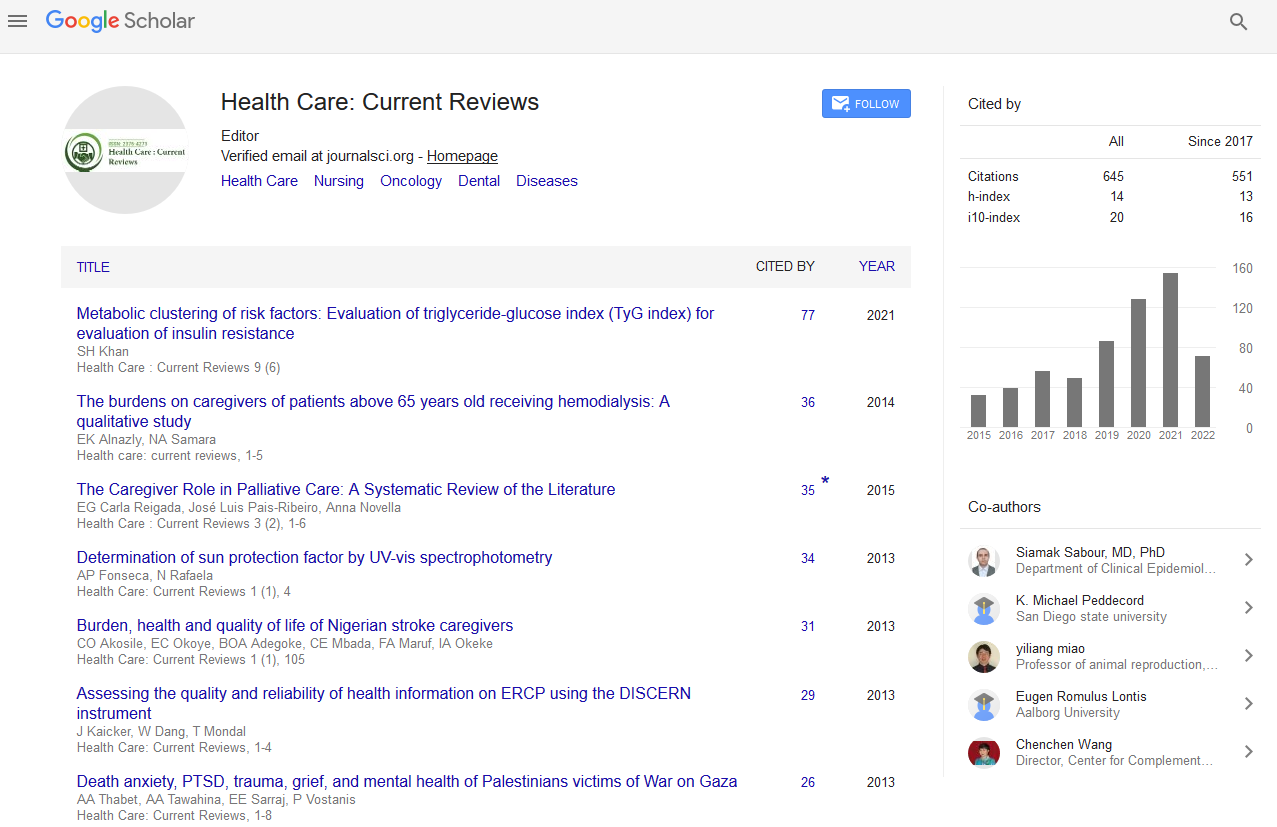PMC/PubMed Indexed Articles
Indexed In
- Open J Gate
- Academic Keys
- RefSeek
- Hamdard University
- EBSCO A-Z
- Publons
- Geneva Foundation for Medical Education and Research
- Google Scholar
Useful Links
Share This Page
Journal Flyer

Open Access Journals
- Agri and Aquaculture
- Biochemistry
- Bioinformatics & Systems Biology
- Business & Management
- Chemistry
- Clinical Sciences
- Engineering
- Food & Nutrition
- General Science
- Genetics & Molecular Biology
- Immunology & Microbiology
- Medical Sciences
- Neuroscience & Psychology
- Nursing & Health Care
- Pharmaceutical Sciences
Impact of radiotherapy treatment on Jordanian cancer patientsâ?? quality of life and fatigue
4th Global Summit on Healthcare
November 09-10, 2015 Dubai, UAE
Kholoud Zaki Abu Obead
Jordan University of Science and Technology, Jordan
Posters-Accepted Abstracts: Health Care: Current Reviews
Abstract:
Purposes: The purposes of this study were to (1) examine the impact of radiotherapy treatment on Jordanian cancer patients�?? quality of life (QOL) and fatigue, (2) explore the relationship between fatigue and quality of life among Jordanian patients who receive radiotherapy as a primary treatment for their cancer. Design: One group quasi experimental co-relational design was used with 80 patients who had been diagnosed with cancer and required radiotherapy treatment. Methods: Quality of life was measured using the Functional Assessment of Cancer Therapy-General (FACT-G). Fatigue was measured using Piper Fatigue Scale (PFS). Data were collected over a period of three months and analyzed using descriptive statistics, paired-sample t-test and Pearson Product Moment Correlation. Results: Statistically significant differences were found between pre and post radiotherapy QOL mean total scores, as well as physical, emotional, sexual and functional wellbeing dimensions. Statistically significant differences were found between pre and post radiotherapy fatigue mean total scores, as well as on behavioral, affective, sensory and cognitive dimensions of PFS. Quality of life total scores correlated significantly and negatively with total fatigue scores. Conclusion: Results were discussed in light of Arab Moslem culture and implications were made for nursing research, practice, education and administration.
Biography :
Email: Kzabuobead@just.edu.jo


